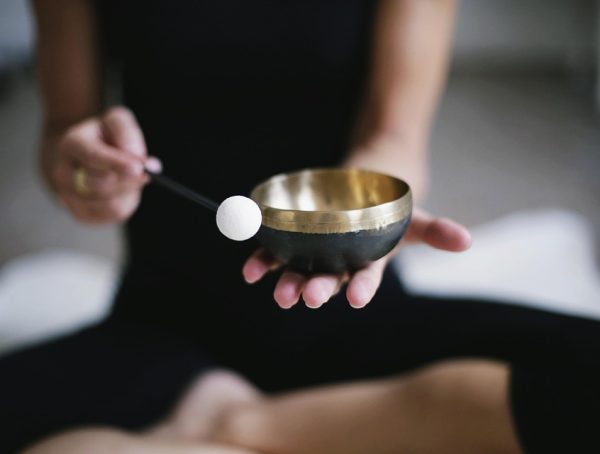Mindfulness Meditation: A Tool for Student Success
In today’s fast-paced academic environment, where students juggle assignments, exams, extracurricular activities, and social lives, stress and anxiety have become ubiquitous. The constant pressure to perform can foster a sense of overwhelm, making it difficult to focus and succeed. However, there exists a powerful tool that can help students navigate these challenges: mindfulness meditation.
Mindfulness meditation is a practice that involves focusing one’s attention on the present moment without judgment. This centuries-old technique has roots in Buddhist traditions but has gained popularity in recent years as a means to enhance mental clarity, emotional resilience, and overall well-being. For students, incorporating mindfulness meditation into their daily routine can not only improve their academic performance but also contribute to their personal growth.
The Benefits of Mindfulness for Students
-
Stress Reduction: One of the most significant advantages of mindfulness meditation is its ability to mitigate stress. By taking time to focus on the present moment, students can lower their levels of cortisol, the body’s primary stress hormone. This results in improved emotional regulation and a greater sense of calm.
-
Enhanced Concentration: Mindfulness encourages individuals to pay attention to their thoughts and feelings without becoming overwhelmed by them. This practice can help students maintain their focus during lectures or while studying, allowing them to absorb information more effectively.
-
Improved Academic Performance: Research has shown that regular mindfulness practice can lead to better grades and academic performance. When students are more centered and focused, they are likely to learn more efficiently and retain information longer.
-
Emotional Resilience: Mindfulness promotes emotional awareness and helps students recognize their feelings without judgment. This self-awareness can result in improved coping mechanisms in times of distress, fostering resilience that is crucial during challenging academic periods.
- Better Relationships: Developing mindfulness not only enhances self-awareness but can also lead to better communication skills. Students who practice mindfulness are often more empathetic and better able to manage interpersonal conflicts, leading to improved relationships with peers and teachers alike.
Action Steps to Incorporate Mindfulness Meditation
If you’re a student looking to harness the power of mindfulness meditation for academic success, here are some practical steps to help you get started:
1. Commit to a Routine
Set aside a specific time each day for your mindfulness practice. Whether it’s in the morning to prepare for your day, during a lunch break, or before bed, consistency is key. Start with just five minutes a day and gradually increase the duration as you feel comfortable.
2. Create a Dedicated Space
Find a quiet, comfortable place where you can meditate without distractions. This space should feel calming and safe, allowing you to relax and focus. A simple cushion or chair can serve as your meditation seat.
3. Use Guided Meditations
If you are new to mindfulness meditation, consider using guided meditations. There are numerous apps and online platforms that offer free resources. Guided sessions can provide structure and help you stay focused during your practice.
4. Practice Breathing Techniques
Breath awareness is a fundamental aspect of mindfulness meditation. Take deep, slow breaths, and focus on the sensation of the air entering and leaving your body. When your mind wanders, gently bring your focus back to your breath.
5. Incorporate Mindfulness into Daily Activities
Mindfulness doesn’t have to be limited to formal meditation sessions. Try incorporating mindfulness into your daily activities, such as eating, walking, or even studying. Focus on the sensory experiences—what you see, hear, smell, and feel—without judgment.
6. Join a Group or Class
Consider joining a mindfulness group or enrolling in a class at your school or local community center. Sharing your experiences with others can provide support and motivation, making your mindfulness practice even more enriching.
7. Reflect on Your Experiences
After each mindfulness meditation session, take a few moments to reflect on your experience. Notice how you feel physically and emotionally and observe any changes in your concentration and mood over time.
Encouragement for Students
Incorporating mindfulness meditation into your daily routine can lead to remarkable transformations in your academic and personal life. It is essential to approach this practice with an open mind and patience, understanding that results take time.
Remember, the goal of mindfulness is not to eliminate stress or anxiety entirely, but rather to change your relationship with these feelings, allowing you to respond to them more effectively. As you continue on your academic journey, let mindfulness be your companion, guiding you toward success by fostering clarity, focus, and emotional well-being.
In a world where distractions abound and pressures mount, cultivating mindfulness can be a game-changer. Give yourself the time and space to embrace this practice, and watch as it enhances not only your studies but also your overall quality of life.
Final Words of Inspiration
“Mindfulness isn’t difficult. What’s difficult is to remember to be mindful.” – Jon Kabat-Zinn
If you found this article helpful, consider following Kevin on Instagram (@KSteineman) for more insights on mindfulness, student success, and personal growth!
You might also like
More from Meditation
The Role of Mantras in Transcendental Meditation: A Deep Dive
The Role of Mantras in Transcendental Meditation: A Deep Dive Transcendental Meditation (TM) has garnered a significant following across the globe, …
The Science Behind Meditation: Improving Mental Health Naturally
The Science Behind Meditation: Improving Mental Health Naturally In today's fast-paced world, the pursuit of mental wellness has become paramount. Thousands …
Understanding the 7 Types of Meditation for Beginners
Understanding the 7 Types of Meditation for Beginners: A Path to Inner Peace Meditation has become a popular practice in recent …


































